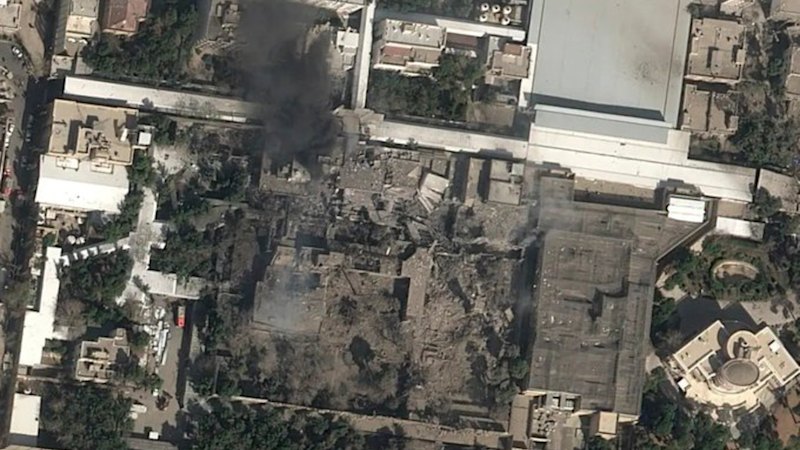
Israel’s recent approval of the East1 (E1) settlement plan in the West Bank has ignited widespread international condemnation. This controversial development could significantly jeopardize the future viability of a Palestinian state. Announced by Israel’s finance minister, Bezalel Smotrich, the plan has raised alarms among various nations, including Australia. Smotrich stated that the initiative “definitively buries the existence of a Palestinian state,” claiming it effectively removes the prospect of recognition for Palestinian statehood.
Despite significant international backlash, Israel sanctioned the E1 project on October 26, 2023. The United Nations has deemed such settlements illegal under international law, citing the Geneva Convention, which prohibits an occupying power from relocating its civilian population into occupied territories. The E1 site is located approximately 12 square kilometers on the outskirts of Jerusalem, adjacent to the settlement of Ma’ale Adumim, which is home to around 40,000 Israelis.
The E1 plan proposes the construction of over 3,400 housing units in the area. According to the Israeli NGO Peace Now, infrastructure work could commence within a few months, with housing construction expected to follow within a year. A recent United Nations report indicated that the number of Israeli settlers in the West Bank had surged to approximately 700,000 since October 2023, while the region is also home to about 2.7 million Palestinians.
Historical Context of the E1 Settlement Plan
Originally proposed in 1994 by former Prime Minister Yitzhak Rabin, the E1 plan has faced numerous delays. In 2005, its development was halted due to intervention from then-US President George Bush, who argued that it contradicted American foreign policy. The plan resurfaced in 2012, following a UN vote to grant non-member status to the State of Palestine, but was again stalled due to international condemnation.
In 2023, amidst escalating violence in the West Bank, Prime Minister Benjamin Netanyahu revived the E1 proposal, which was ultimately abandoned following diplomatic pressure from US Secretary of State Antony Blinken. Now, under the influence of Smotrich, who leads the ultranationalist Religious Zionism party, the plan is being pushed forward more aggressively. Smotrich has a history of controversial statements about the Palestinian territories and has been sanctioned by Australia and other nations for inciting violence.
All Israeli settlements in the West Bank, which Israel has occupied since 1967, are deemed illegal under international law. In a 2024 advisory opinion, the International Court of Justice confirmed that Israel’s occupation of the West Bank and East Jerusalem violated international law, urging an end to its presence in the territory. While Israel disputes this, asserting historical and biblical claims to the area, the global community largely considers these settlements illegal.
The Implications of E1 for Palestinian Statehood
The E1 proposal is critical to the longstanding vision of a two-state solution, which envisions a Palestinian state encompassing East Jerusalem, the West Bank, and Gaza. The proposed site would be pivotal in connecting the cities of Ramallah and Bethlehem, which are approximately 22 kilometers apart. Currently, Palestinians traveling between these cities must navigate Israeli checkpoints, complicating movement and access.
The Palestinian Authority (PA) has expressed severe concerns regarding the E1 plan, stating it would further fragment the already divided West Bank, effectively isolating Palestinian communities. The PA described the situation as creating “real prisons,” where movement relies heavily on Israeli checkpoints and armed settler militias.
In response to the plan, Smotrich himself has indicated that the E1 development is a strategic move to prevent the establishment of a Palestinian state. He noted that the plan is a tangible representation of a long-standing commitment to eliminate the prospect of Palestinian statehood.
A joint statement condemning Israel’s decision was issued by foreign ministers from 21 countries, including Australia, Canada, France, and the United Kingdom. The statement, signed by Australian Foreign Minister Penny Wong, labeled the E1 settlement as “unacceptable and a violation of international law,” warning that it threatens regional security and escalates violence.
The international response underscores the urgency of the situation. The statement encouraged the Israeli government to reconsider its stance on the E1 plan, highlighting an opportunity to prevent further escalation. As the geopolitical landscape continues to shift, the future of Palestinian statehood hangs in the balance, with the E1 settlement plan posing a significant challenge to peace efforts in the region.






